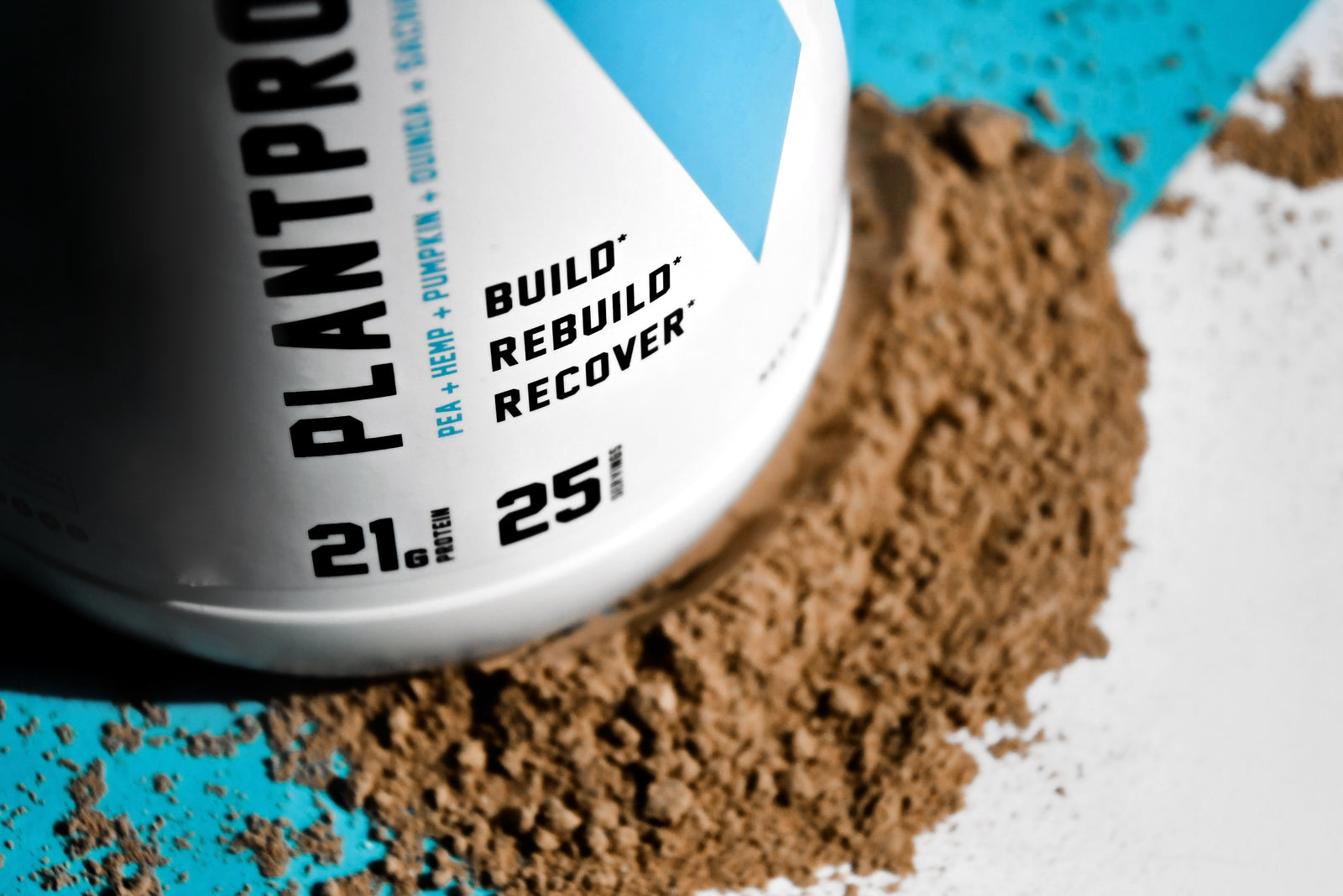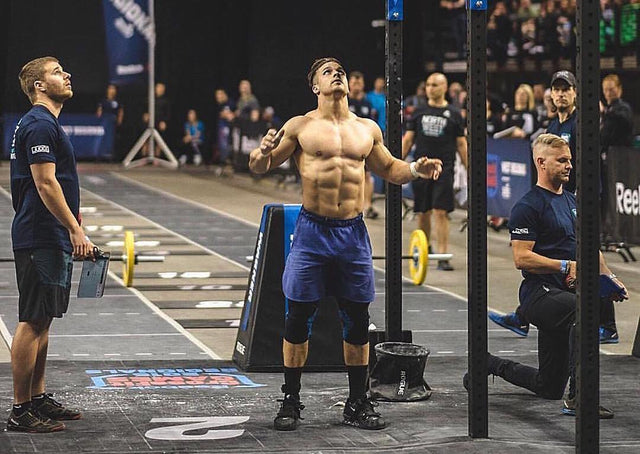When you think of the best types of protein powder, pea protein rarely comes to mind, if ever. Animal sourced proteins such as Whey, Casein, and Egg have always dominated the sports protein landscape, due to their proven health benefits and piles of clinical studies supporting their performance outcomes. But with the healthy movement in full swing, plant-based diets have become increasingly popular, amongst animal lovers, and health enthusiasts worldwide. With this shift in modern-day dieting trends, recent research has found that pea protein, is a legitimate rival of protein like whey regarding sports performance. Peas may come in a small package, but these tiny vegetables, are proving their worth for any type of athlete, plant-based or not. Learn these 5 amazing pea protein health benefits and decide if pea protein powder is right for you.
What Is Pea Protein?
Peas are legumes, similar to chickpeas and lentils. Pea protein is made by extracting then isolating the protein from yellow peas. Typically, pea protein is used as a food ingredient or additive to increase protein content. It’s also extremely easy to disguise, making it a great option as a plant protein substitute in everything from vegan burgers, cheese, yogurt, milk, and protein bars.
What Are The Health Benefits Of Pea Protein?

1. Strength & Muscle Mass
Although animal-based protein sources such as whey, casein, and egg are highly effective at improving athletic performance goals, pea protein has also proven to deliver anabolic benefits. Specifically, pea protein is just as effective in stimulating muscle protein synthesis and providing other valuable attributes such as efficient and quick digestibility in addition to providing valuable micronutrients.
In a double-blind randomized controlled study published in the Journal Of The International Society Of Sports Nutrition, pea protein went head to head against whey protein, to investigate the effects on muscle composition and strength. 161 male participants enrolled in a 12-week resistance training program and were randomized into a pea, whey, and placebo control group. The results showed a significant and greater effect on muscle composition amongst the pea protein group, with no clinical difference between groups in regard to muscle strength.
Therefore, this study proves that Pea protein is a phenomenal plant-based protein source to help increase muscle strength and composition, to further improve athletic performance [R].
2. Optimizes Athletic Performance
Pea protein has been proven to fuel athletic performance, through improving strength, increasing lean muscle mass, and optimizing recovery through delivering a higher amount of essential amino acids, than its plant protein counterparts.
As compared to other plant-based protein sources, Pea protein has the highest essential amino acid mix, almost rivaling that of Whey Protein [R]. It also has better bioavailability, delivering essential amino acids with a higher yield of protein, faster.
Due to its high amount of essential amino acids, specifically arginine, leucine, isoleucine, valine, and alanine, pea protein is an amazing plant-based protein alternative for athletes. Arginine specifically helps facilitate the release of nitric oxide, which increases oxygen and blood flow, translating to increased muscle growth, and better recovery. Pea Protein has nearly three times the amount of arginine than whey protein.
3. Valuable Micronutrients
The thing about plant-based protein is that they typically have more micronutrients. Pea protein is rich in iron, manganese, folate, copper, phosphorus, vitamins B6, B2, niacin, molybdenum, fiber, and vitamins A, C, and K. Furthermore, one cup of peas contains 8.6 grams of protein, which is a ton for a plant-based protein source. But don’t go eating buckets of peas just yet. If you were to eat a whole cup of peas, it would definitely be challenging. That’s where supplementation comes into play.
4. Quick And Rapid Protein Absorption
Protein digestibility-corrected amino acid score (PDCAAS) is a method of evaluating the quality of a protein. PDCAAs are based on both the amino acid requirements of humans and their ability to digest it. Most plant proteins have low bioavailability (meaning the body has a hard time absorbing the nutrients). Pea protein isolate, however, ranks at a 0.928, on a scale of 1 being the highest in digestibility. The PDCAA of pea protein is therefore very similar to that of whey, casein, and egg. Unlike other vegetable sources, pea protein also does not contain any anti-nutritional factors, which are known to diminish nutritional potential by impeding digestibility and bioavailability [R, R].
5. Complete Source Of Protein
Pea protein has an impressive essential amino acid profile, which is paramount to support your athletic performance. Yet, there is an ongoing debate, whether or not Pea Protein is a complete source of protein. Although pea protein contains all nine essential amino acids, technically making it a complete protein, critics say that it’s too low in the amino acid methionine. As compared to other plant-based protein sources, pea protein is the closes to rival other animal-based protein sources with a very similar amino acid content.
The bottom line is that it is important to include a variety of healthful protein sources in your diet, to ensure adequate levels of all essential amino acids to optimize post-workout muscle recovery, and nutrient requirements. Many vegans and vegetarians already include a culmination of varying protein sources from their diet and with supplementation to meet their essential amino acid intake. We recommend Swolverine’s PLANTPRO5® as it contains Pea, Sacha Inchi, Quinoa, Pumpkin Seed, and Hemp proteins.
Pea Protein Vs Whey Protein
Whey protein concentrate is the liquid by-product of the manufacturing process of cheese. When the casein and water are removed from this by-product, you are left with, what’s better known as whey protein concentrate. Most whey protein concentrates are composed of 70-80% pure protein and contain over 50% lactose, with a higher content of fat and carbohydrates, as compared to whey protein isolate.
RELATED ARTICLE Pea Vs Whey Protein: Which One Is Better?
A study conducted at Lipscomb University in Tennessee compared the effects of whey and pea protein supplementation in conjunction with 8-weeks of High-Intensity Functional Training (HIFT) on strength, body composition, muscle thickness, IMTP peak force, IMTP RFD, and WOD performance. The results confirmed that whey and pea proteins promote similar strength, performance, body composition, and muscular adaptations following 8-weeks of HIFT [R].
If you think that whey, casein, and egg are the only protein sources that will help you hit your next PR, it might just be the little green bean, that powers your clean and jerk.
|
Amino Acid |
Whey Protein |
Pea Protein |
|
Alanine |
3.5 |
4.3 |
|
Arginine |
2.3 |
8.7 |
|
Aspartic Acid |
8.4 |
11.5 |
|
Cystine |
1.7 |
1 |
|
Glutamic Acid |
13.3 |
16.8 |
|
Glycine |
1.4 |
4.1 |
|
Histidine |
1.6 |
2.5 |
|
Isoleucine |
4.6 |
4.5 |
|
Leucine |
8.8 |
8.4 |
|
Lysine |
7.5 |
7.2 |
|
Methionine |
1.6 |
1.1 |
|
Phenylalanine |
2.6 |
5.5 |
|
Proline |
6.6 |
4.5 |
|
Serine |
4.6 |
5.3 |
|
Threonine |
4.5 |
3.9 |
|
Tryptophan |
1.3 |
1 |
|
Tyrosine |
2.3 |
3.8 |
|
Valine |
4.4 |
5 |
Pea Protein Vs Hemp Protein
- Pea protein contains a higher amount of the essential and branched-chain amino acids you need for optimal performance
- Pea protein has more protein per serving than hemp protein
- Pea protein is a superior protein source than hemp to due its bioavailability, digestion score which is similar to casein or egg protein.
- Pea protein has a neutral flavor, unlike hemp protein which is nutty/earthy in flavor with a chalky or grittier texture
- Unlike pea protein, Hemp protein contains healthy essential fatty acids omega-6 and omega-3, and a high fiber content
RELATED ARTICLE Pea Vs Hemp Protein: What Are The Differences?
Pea Protein Vs Soy Protein
- Pea protein and soy protein contain all essential and branched-chain amino acids you need for optimal performance. However, pea protein has slightly elevated levels compared to soy.
- Soy protein has slightly more protein per serving than pea protein
- Soy protein is a superior protein source than pea according to its bioavailability and amino acid score which is similar to casein or egg protein. However, studies show that pea protein promotes muscle protein synthesis better than soy protein despite the difference in PDCAA.
- Both Pea protein and soy protein have a neutral flavor and smooth texture
- Soy protein is a common allergen and pea protein is hypoallergenic.
RELATED ARTICLE Pea Vs Soy Protein: What Are The Differences?
Pea Protein Benefits: Takeaway
Plant-based or not, pea protein proves to be an amazing option to enhance performance outcomes and a staple in any athlete's supplement regimen. With an impressive amino acid mix, protein digestibility rate, and micronutrient profile pea protein could be the next gold standard in protein powder.
Looking for an amazing Plant-Based Protein To Help You Hit Your Goals?
SWOLVERINE is an endurance athlete and active lifestyle brand. Made for the elite athlete, and the strong-willed our products were designed to fuel your athletic performance. We perform when you perform.
We believe that everyone can optimize not only their athletic performance but their human potential. The way we believe we can optimize performance is through transparency, clinically effective doses, and clinically proven ingredients with evidence-based outcomes. We provide the nutrients you need to power your active lifestyle.
References
Gorissen, Stefan HM et al. “Protein content and amino acid composition of commercially available plant-based protein isolates.” Amino acids vol. 50,12 (2018): 1685-1695. DOI:10.1007/s00726-018-2640-5
Babault, Nicolas et al. “Pea proteins oral supplementation promotes muscle thickness gains during resistance training: a double-blind, randomized, Placebo-controlled clinical trial vs. Whey protein.” Journal of the International Society of Sports Nutrition vol. 12,1 3. 21 Jan. 2015, doi:10.1186/s12970-014-0064-5
Banaszek, Amy et al. “The Effects of Whey vs. Pea Protein on Physical Adaptations Following 8-Weeks of High-Intensity Functional Training (HIFT): A Pilot Study.” Sports (Basel, Switzerland) vol. 7,1 12. 4 Jan. 2019, DOI:10.3390/sports701001
Fang, S. Yu et al., J Agric Food Chem., 52(12), pp. 4012-4020 (2004)
Fernandez-Quintela, M.T. Macarulla et al., Plant Foods Hum Nutr., 51(4), pp. 331-342 (1997).














